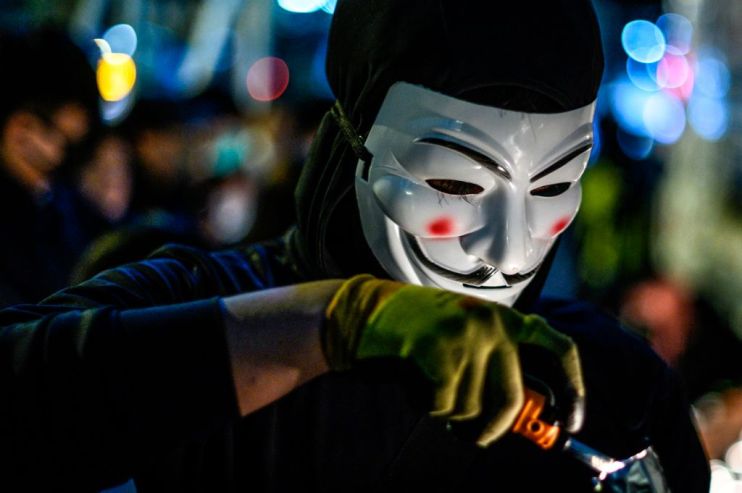UK backs facial recognition project that helps Beijing catch masked protesters

The government has partnered with Beijing to back a project aimed at developing facial recognition technology that can identify people wearing masks.
The Home Office and the Metropolitan Police are both involved in a programme that carries out research jointly funded by the Chinese state — despite the country’s reported use of surveillance technology to identify and imprison minorities.
While facial recognition is already in use, the research would allow governments to identify people whose faces were obscured by masks or sunglasses, such as pro-democracy protesters in Hong Kong.
The links to China have sparked fears that the joint project could lead to the UK participating in Beijing’s authoritarian crackdowns.
“We are learning what Beijing’s culture of control really costs,” Tom Tugendhat, chair of the Foreign Affairs Select Committee, told City A.M.
”The UK should not be helping the Communist Party to monitor even more people, especially now the global costs are becoming clear.”
The five-year programme, dubbed FaceR2VM, brings together academics at the University of Surrey, Imperial College London and the University of Sterling.
In 2015 it was handed £6.1m in government grants, while the Home Office is named as an official partner. The BBC was also a partner, but withdrew in 2017.
FaceR2VM — which stands for Face Matching for Automatic Identity Retrieval, Recognition, Verification and Management — was launched in 2016 and is due to run until the end of September 2021.
On its website the programme states its aim is to develop “unconstrained face recognition” in a bid to make the technology “ubiquitous”.
Former Hong Kong governor Lord Patten, who is now chancellor of Oxford University, described the collaboration as “profoundly worrying”.
“It is a matter of concern when we find ourselves assisting what is a totalitarian state in developing surveillance technology used to police and incarcerate more than a million Muslims in Xinjiang,” he told the Sunday Times, which first reported the programme.
“This is exactly the sort of research collaboration over which we should be extremely careful.”
The Home Office confirmed it was “one of several partners” in the project, but did not comment on the links to China.
“It is for universities to decide who they conduct research with, and how, within existing domestic and international legal frameworks,” it said in a statement.
It is understood the Home Office sent one person to attend steering boards, while it supplied datasets to be used only by the University of Surrey.
The Met Police confirmed it was part of the project, but said it had attended only a “handful” of meetings and that no technology developed from the project had been introduced yet.
“The Met is committed to using new and emerging technologies to tackle crime and stop violent criminals and has a responsibility to stay abreast of evolving technologies that could be of benefit to policing,” a spokesperson said.
The use of facial recognition is widespread in China, which uses the technology for its so-called social credit system, which ranks citizens based on their behaviour.
The technology has reportedly also been used by authorities as part of a crackdown on Uighur Muslims. More than 1m Uighurs are thought to have been detained in the Xinjiang region as part of a “re-education” programme.